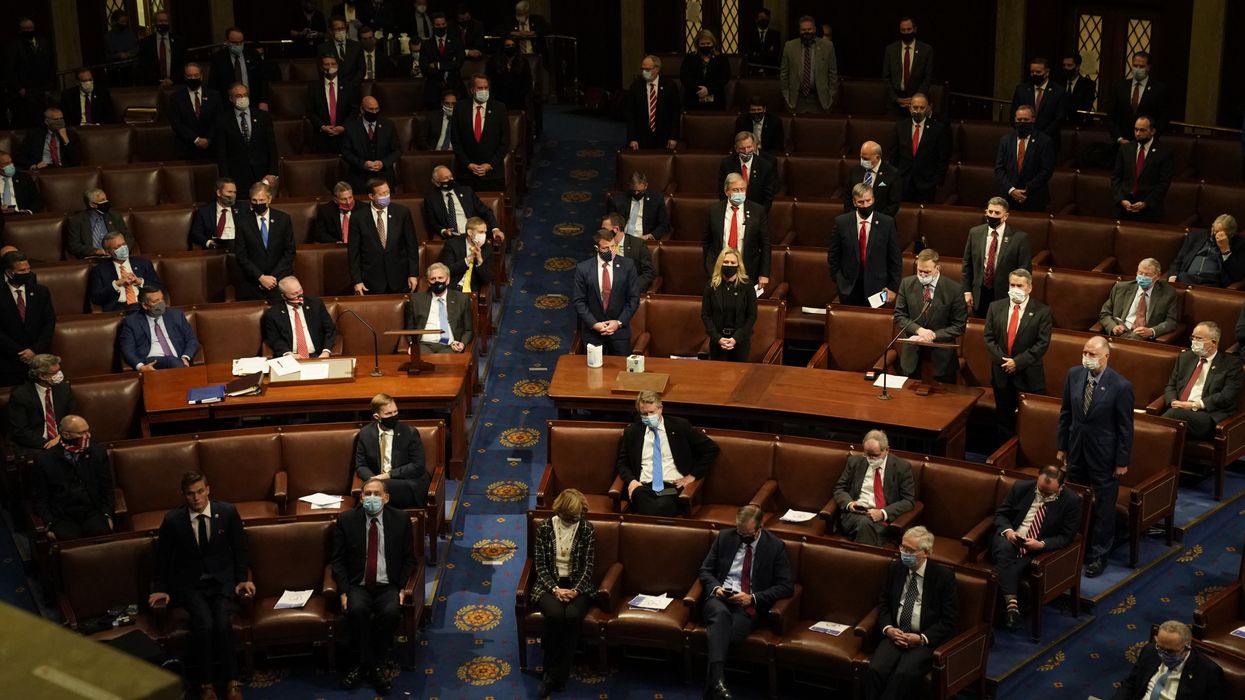Griffiths is the national editor of Independent Voter News, where a version of this story first appeared.
More than a year after the highly contested 2020 election, the controversy over the integrity of the process and the response to the election results is still on full display in our nation’s capital. A proposed change to a law controlling the Electoral College seeks to ease any concerns over the presidential elections process.
Even though the Electoral College is enshrined in the Constitution, Congress did not have rules to deal with the chaos of contested election results until passing the Electoral Count Act of 1887. The law was a response to the 1876 presidential election, in which three states – Florida, South Carolina and Louisiana – upended the entire process by sending in multiple slates of electors to Congress.
Democrat Samuel Tilden had won the popular vote over Republican Rutherford B. Hayes. However, because of the contested results, Congress created an ad hoc commission to decide the presidency. In the end, Hayes would be declared the winner.
Many Democrats, furious over the decision, refused to accept the results until the Compromise of 1877, which called for an end to Reconstruction and the withdrawal of federal troops from former Confederate states. It took Congress a decade, however, to pass a law that lawmakers hoped would ensure history would not repeat itself.
Thus, we got the Electoral Count Act.
Each state is granted a certain number of electors, based on population. The winner of each state's popular vote is awarded electors, who cast ballots in the Electoral College in accordance with the state's results. Whoever receive a majority of the Electoral College votes wins the presidency.
The law governs the entire electoral counting process. It sets the structure of the process, timelines and procedures on how to handle disputes. It also states unambiguously that the sole intent of Congress should be to count every state’s electoral votes. For instance, the law dictates that electors meet on the first Monday after the second Wednesday in December. It also defines "safe harbor" status for states that submit their electoral results six days before the Electoral College convenes, which means Congress has to treat the results as conclusive even if a state legislature attempts to send in a competing set of results.
However, many legal experts believe the law is not without flaws, particularly when applied to modern elections. The National Task Force on Election Crises called it "extraordinarily complex" and "far from the model of statutory drafting" in its analysis of the law. The task force’s analysis mostly highlights what the law does. However, it also believes the ECA must be updated.
The law, for example, allows members of Congress to easily object to the counting of electoral votes on a state-by-state basis, which slows down the process. This tactic has been used by members of both parties, including Democrats after the election of Donald Trump and Republicans after the election of Joe Biden.
It also doesn’t define the vice president’s role in unambiguous terms, something that came up after the 2020 election when Trump suggested Vice President Mike Pence could overturn the results – something federal law does not allow. Pence even said that such action was not within his power as established in the Constitution..
Among the task force;s recommendations:
- The ECA must better clarify timelines for states to choose electors and clearly define circumstances in which elections may be decided after Election Day.
- The ECA must bolster the protections granted to states to adjudicate their own election disputes.
- The ECA must make the mechanism for dispute resolution less convoluted, as the current law allows for extensive procedures but no clear path for final resolution.
- The ECA must clearly state that partisan and political preference is not a legitimate reason to object to the counting of electoral votes, and not only require more than one member from each chamber to raise an objection, but narrowly define the grounds upon which members can object.
- The ECA must better clarify the vice president’s role in the process, which is “limited and ministerial.”
Members of both parties support updating the ECA to not only strengthen the process, but to bolster confidence in its integrity. Some even believe it would help prevent another Jan, 6 incident. An update to the ECA is expected to emerge in the Senate soon.
It is important to note that any bill to change the ECA would not impact any structural and administrative issues related to the popular vote.
There is a last ditch effort by Democrats in the Senate to advance two reform bills that would take a more expansive approach to election law in the Untied States: the Freedom to Vote Act and the John Lewis Voting Rights Advancement Act. The first includes provisions to expand voting access and standardize voting laws in federal elections across the country, along with other provisions that make Election Day a national holiday, bar partisan gerrymandering for congressional districts, require voter-verifiable paper ballots and post-election audits, make interfering in voter registration a federal crime, make changes to campaign finance laws and more.
The John Lewis bill would update the Voting Rights Act of 1965 to determine what states must submit to federal review of election changes before they can be instituted (a process struck down by the Supreme Court in Shelby County v. Holder).
United Republican objection to both bills has prevented them from even making it to the Senate floor, and in all likelihood these bills will never advance to the president’s desk without changing filibuster rules.




















Trump & Hegseth gave Mark Kelly a huge 2028 gift